Puccini: La Bohème (de Billy / Dornhelm)
Introduction
Here we are again, in the impoverished quarters of four artistic types of varying hues, all striving for the riches and fame they feel they deserve, yet none of them quite hitting the giddy heights of Parisian, let alone global, stardom. They act like a bunch of male students, trying to scrape a living, pull as many women as possible, and get out of paying rent.
Robert Dornhelm's film of what is arguably Puccini's most famous opera takes a relatively safe, traditional route, with little to tax the brain, and despite an air of 'chocolate-box tourism' this is no bad thing. He says himself in the extras that he's not a fan of updating for the sake of it (in fact, he practically admits he's not much of a fan of opera in the first place!) and wanted to try to get away from 'the artifice of opera', concentrating on the human drama involved in the story. I'm all for this myself, as it's the simplest of plots from which any subtleties could be lost within a hugely expansive adaptation. The story has, of course, been 're-imagined' for more modern tastes in 'Moulin Rouge' and 'Rent', but as is often the case, the original can't really be beaten.
Audio
Taken from the CD recording by many of the same cast (more on this later) in 2007, itself an amalgamation of concert performances in Munich, the overall sound is lush, vibrant but in parts, heavily imbalanced. This doesn't create an issue with drowning out of singers, as it may in a live staged performance, but often, the orchestral music seems delberately forced into the background to compensate for other things, creating an unnatural feeling to much of the film. All the voices are well to the fore however, and for the most part, there is little problem with lip-synch.
Video
Very clear widescreen presentation (something Dornhelm admits he hasn't worked with before) which often emphasises the studio-bound sets, but the colours and lighting effects, such as they are, are stunning.
Many of the scenes are in black and white only, and this is quite an effective technique but I'm wondering whether it wouldn't have been more successful if the whole thing was filmed like this.
Extras
A fairly mixed bag of interviews with Dornhelm (23 mins), Netrebko (6 mins), Villazón ( 5 mins), Cabell (3 mins) and an incredibly brief one from George von Bergen. Together with this, we have a half-hour 'Making of...' (by Christoph Engel), a Hollywood-ish trailer, and 21 stills from the production.
Dornhelm's interview is by far the most interesting, although he seems to contradict himself a few times. Here, he admits that despite having a close relation who is a director of the Vienna Opera, he has little or no interest in opera himself, and goes as far as saying "We have surpassed opera" in Western culture. So what's he doing with this little package then?! I believe he secretly loves it, although I agree with his opinion that with some productions, it's as if you are walking into a museum to worship a dying art form.
His original idea was to make two versions of the film, one full of visual effects such as Magritte paintings coming to life. Luckily, we are spared many of these pretensions, although one or two remain - such as the parrot in the screenshot above. No explanatons are forthcoming.
The 'Making of..' contains much of what we have heard in the interviews beforehand, but also takes us into more depth than most similar extras. Ideally, this could have been stretched to an hour as it's always fun to see how scenes are set up, how the problems of lip-synching are overcome, and wonder why noone thumps Villazón for messing around so much (one of the assistants in the crew certainly didn't look too happy). He certainly has an evil sense of humour, but was obviously hamming it up for the cameras.
The subtitles are a little disappointing (being created by Dornhelm himself). They seem to appear at bizarre moments, and leave much of what we hear 'unsaid', especially in the scenes at which the chorus is in full pelt.
There is also 'an exclusive limited edition collector's booklet' to be had, which contains an informative essay on the opera from Roger Parker (of King's College, London), five short biogs and a few colourful publicity shots.
Conclusion
There is so much right with this film, yet so much that could have been better.
Bohème is the one work that I have always recommended people see first if they have never seen an opera before. It's a work that contains almost every human emotion, chews them up, spits them out, and then waits until the final 2 minutes for its devastating finale. Full of humour, pathos, realistic interaction and dialogue...need I go on?
The film has all the above, so that's good.
What isn't so good is that Marcello and Schaunard (and a few more minor characters) are dubbed. This isn't explained in any of the extras, so I can only surmise that the original artists were not available for filming, or some contractual shenanigans was being fought over. So, we see George von Bergen as Marcello and hear Boaz Daniel. Similarly, Adrian Eröd acts Schaunard (very well too!) but his voice has been taken over by Stéphane Degout.
I can vouch for the fact the von Bergen has a fine voice himself as I worked with him a few years back, so I'm hoping those who just 'mimed' (although they had to sing to the soundtrack in the studio) were well recompensed.
Another small niggle, although the more I listen it becomes more of an annoyance, is that 'Che gelida manina' is sung down a semitone. I imagine Villazón may have had some issues in the original concert recordings, but his voice is certainly capable of the original key, and the grating feeling we get when the pre-aria tonality shifts downwards is never going to go away.
Another much larger (and almost unforgiveable) annoyance is that Act III doesn't actually end. All the acts run quite seemlessly into one another in the film, and Dornhelm obviously wanted this for the transition between Acts III and IV. but to remove the final two notes that give the whole scene its balance is at best, peculiar, and at worst, vandalism.
Anyway, back to the good things.
Much of what we hear in the extras revolves around the need to remove many of the larger gestures and facial movements (necessary in a theatre) for when everything gets up close and personal on a film set. Overall, this is managed quite easily, although Villazón's own vocal technique has always used his whole face and so his intensity can become a little tiring at times.
Netrebko is wonderful in the role, and is introduced much earlier than is usual as she notices the commotion upstairs, and heads up well before her first appearance in the score itself. This makes the character appear more conniving and manipulative than in many productions, and so becomes far more interesting.
Her bouts of coughing are naturalistic, but even towards the end, she is never seen as someone who is wasting away, and there's not a speck of blood to be seen. Basically, she looks far too healthy throughout. So much for trying to remove 'the artifice' of opera.
Villazón, facial gurning aside, is a natural at this role. He shows himself to be full of humour and passion in equal measure, and his singing is phenomenal.
There is definitely a powerful chemistry between these two singers, and it's great to see them act and sing together again, but sometimes there are moments where Dornhelm feels that the music should speak for itself (at last!) and so the soundtrack takes over with just the two lovers doing what they are meant to do. Mimi's final aria is a case in point and makes everything all the more compelling.
Nicole Cabell (Musetta) is perfect as the great operatic 'tart with a heart'. As far as I'm concerned, it's a role which is made or broken on the 'Waltz', and I have rarely heard it sung better than here. She is also particularly moving when asking Marcello to sell her earrings to buy Mimi some medicine.
The chorus scenes buzz away quite happily, yet without subtitles, the music suddenly turns into more of a soundtrack and we begin not to notice some rather good music going on. Images of fire-eaters and jugglers are to be expected, but perhaps Dornhelm should have been a bit more adventurous.
Bertrand de Billy's interpretation is a solid, yet quite brisk take on events. I prefer it this way, as some are liable to dwell on the more 'sugary' moments, making things a bit too stodgy, even for a Puccini-phile. The BRSO play splendidly (when you can hear them), as you would expect.
Not a perfect Bohème, but a very satisfying one, bar the obvious irritations listed above. Dornhelm has created a very pretty, but heartfelt film. Without the musical idiosyncracies, it would have got full marks yet I would certainly recommend it for those who don't know the work.
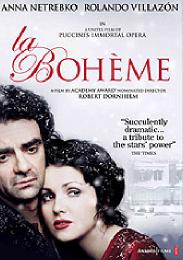
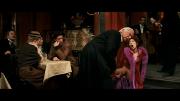
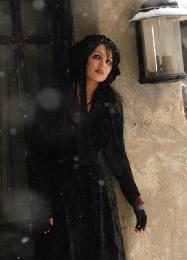
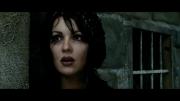
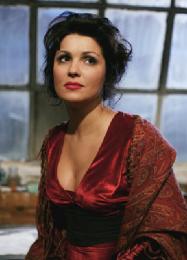
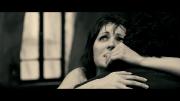
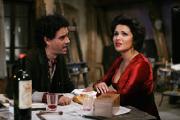
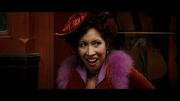
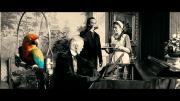
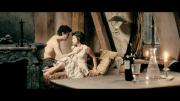



































Your Opinions and Comments
Be the first to post a comment!